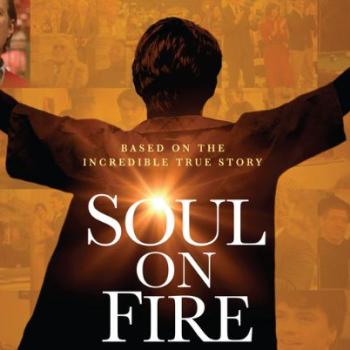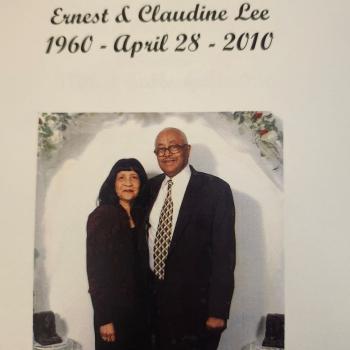Editors' Note: This article is part of the Public Square 2014 Summer Series: Conversations on Religious Trends. Read other perspectives from the Progressive Christian community here.
"It says so right there!"
If you've ever had a conversation about a difficult topic (like sexuality, atonement, or social justice) with a Christian who might not self-identify as "progressive," the odds are you've had to respond to this kind of "logic."
What far too many of us get wrong in that moment is that we keep going. That is a mistake.
It is a mistake because in that moment you should realize that two worlds are colliding. Continuing the conversation is going to lead nowhere while, most likely, further entrenching both sides. It's a mistake because, to quote Cool Hand Luke, "what we've got here is a failure to communicate."
At the root of this miscommunication is a difference in understanding about the interpretation and authority of the Bible.
Realistically, though, it's just the tip of the iceberg of a much larger problem. It's indicative of a divide that is growing in the United States and to understand the divide within the Church we must first understand the one outside of it.
It is tempting to frame the issue as a disagreement on what we value in general or even as a struggle between belief and logic. In the end though, it is about power—either empowering people by including them in asking questions and establishing authority or establishing power over them by telling them what "the answers" are and excluding them from the process.
The whole thing is rooted in control. It's a question of consolidating control or diversifying it. It becomes a question of homogeneity verses diversity. Should power and control be limited to the few or entrusted to the masses? Do we have a government that is operated by a limited number of powerful people and companies, or is it a government of, for, and by the people?
When this national struggle of where authority should rest and how many people get to take part in it is played out in the Church—particularly in relationship to what biblical authority looks like—the secular concept of "too big to fail," which protects the powerful and ignores the masses, is parlayed into "too important to be questioned."
Like "too big to fail," "too big to be questioned" also protects the powerful but, more importantly, it protects the power itself, power derived from religion. There is little in this world that can control a soul like blind faith. "Too big to be questioned" leverages that reality and insures that the answers that best serve those in control are the only "correct" answers.
Women in the pulpit? "No. Women in their proper place." It's the only "correct" answer.
Same-sex marriage? "No. Traditional marriage: one man, one woman." It's the only "correct" answer.
Government helping the least of these? "No. They need to help themselves." It's the only "correct" answer.
"It says so right there!"
The brilliance of this approach is that it doesn't need to actually say that "right there." You just need people to believe that's what it says. Believe it because you say so. Believe it because it allows them to feel more righteous, more pious, more accepted, and more loved by God. It's the carrot that keeps people heading in the direction that the powerful ordain. And, it separates the wheat from the chaff, at least in the minds of those who "believe."
It is time for that kind of biblical "interpretation" to die.
Progressive Christianity is leading the way. As we open the biblical texts and explore them more fully, as technology gives more people access to scholarship, and as we learn to listen more closely to all voices (particularly the marginalized, those the world might see as "the least of these"), we are finding one consistently expressed, overarching, biblical theology: the persistence of love.
Considering the life and teaching of Jesus, it really shouldn't be surprising. It is the commandment he taught us to hold above all others: Love. It is the commandment he taught us sums up all the others: Love God and your neighbor. It is the commandment he taught us to extend even to our enemies: Love.
Love offers hope. Blind faith offers obedience.
Love offers communion. Blind faith offers division.
When you hear, "it says so right there," recognize that "what we've got here is a failure to communicate." It's not a difference in interpretation. It is not even just a difference in opinion. It is a fundamental difference in approach that is rooted in the controlling ways of the larger society in which we reside. There is no true common ground upon which to grow this conversation. So don't even try.
Instead, nurture the soil; create common ground. Instead of arguing, extend love. You don't have to be "right" on this; as a matter of fact, the way they see it, you can't be. You do, however, have to love one another.
Ultimately, that is where biblical authority rests for Progressive Christians: in relationship. It's a relationship between each individual and the text, which is augmented by our relationship with God, which is ultimately defined by our relationship with others—even those with whom we disagree.
How do I know? Well, because the Bible tells me so.
6/18/2014 4:00:00 AM




